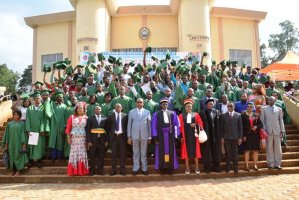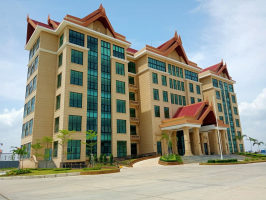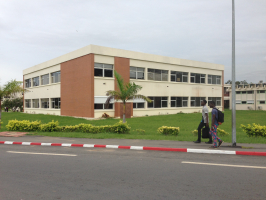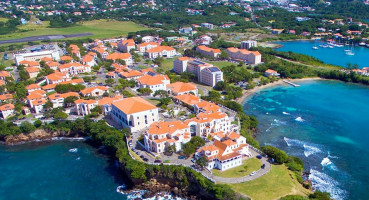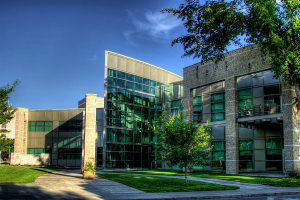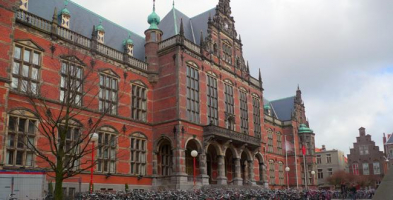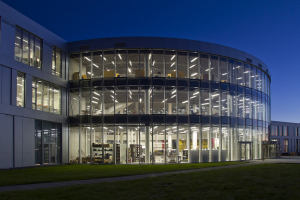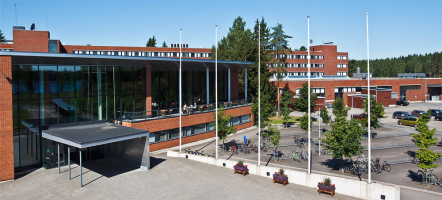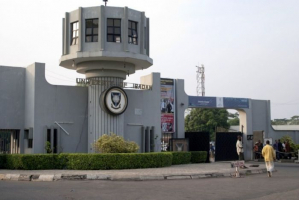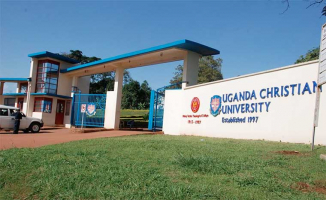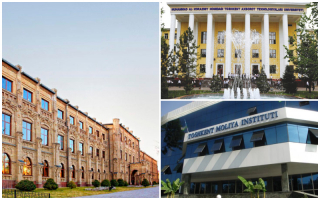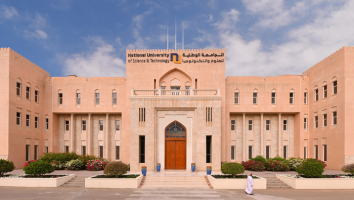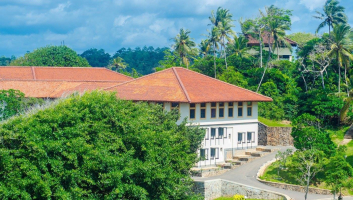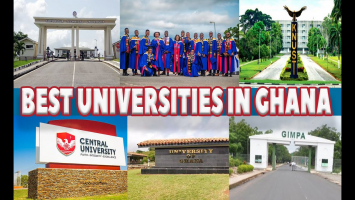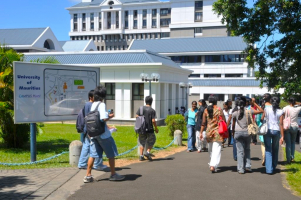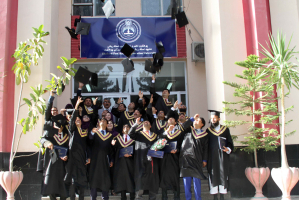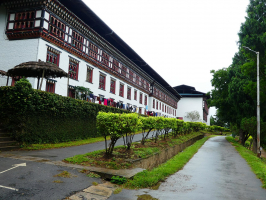Top 10 Best Universities in Brazil
With a population of over 211 million people, Brazil is the largest country in Latin America and the sixth largest in the world. Its official language, ... read more...Portuguese, is spoken by 98% of the population. It has about 7,200 kilometers of coastline, 2,000 beaches, and the world's largest rainforest (a fourth of the entire rainforest area). Anthropologists believe there are at least 60 undiscovered tribes in these deep jungles. Its cities are similarly internationally renowned – from So Paulo, the world's largest city, to Rio de Janeiro, the site of the 2016 Olympic Games, to Brasilia, the utopian-esque capital created by Oscar Niemeyer – the list of its urban gems is endless. It is a member of the BRICS group and one of the world's fastest growing major economies, with economic reforms that propel it ahead on the international scene. There are endless opportunities for travel within the country, but Brazil is also an excellent starting point for seeing neighboring attractions such as Buenos Aires, Patagonia, Machu Picchu, and the Andes. Here's a closer look at the best ten universities in Brazil, according to the QS University Rankings: BRICS
-
The Universidade de São Paulo (USP), rated eighth among BRICS universities, is the first Brazilian university in the QS University Rankings: BRICS. With over 88,000 students and over 21,000 employees, USP is Brazil's largest university.
The University of Sao Paulo, founded in 1934, was the product of a partnership between the Faculdade de Direito do Largo de São Francisco (Law), the Polytechnic School (Engineering), and the Escola Superior de Agricultura Luiz de Queiroz (Agriculture).
It is Brazil's largest public university and one of Latin America's largest higher education institutions. Four of its eleven campuses are located in São Paulo; the others are in Bauru, Lorena, Piracicaba, Pirassununga, Ribeiro Preto, and two in So Carlos.
On campus, there are 70 libraries, five connected hospitals, 24 museums and galleries, two theaters, a cinema, and its own student-run television station. A considerable share of Brazilian scientific articles are also written in universities.
Notable graduates include former Brazilian President Michel Miguel Elias Temer Lulia, writer, professor, sociologist, and literary critic Antonio Candido de Mello e Souza, and former Brazilian Finance Minister Guido Mantega.Founded: 1934
Location: Butanta, São Paulo - State of São Paulo, Brazil
Telefone: +55 11 3091-3116
Website: www5.usp.br

Photo: www.linkedin.com/school/universidade-de-s-o-paulo/ Video: Canal USP -
The only other Brazilian university in the top ten of the QS University Rankings: BRICS is the Universidade Estadual De Campinas (UNICAMP), which is ranked tenth. UNICAMP, like USP, is a public institution in the state of São Paulo that produces around 15% of all Brazilian research. More than half of its over 37,000 students are graduate students, reflecting the university's strong research concentration. The University of Campinas, founded in 1966, is centered in the state of SãoPaulo, although it also maintains associate campuses in Limeira and Paulnia.
It has established itself as a main medical and scientific research facility, producing a significant volume of patentable material.International undergraduates will be required to take a test in order to get admission, which will necessitate a solid command of the Portuguese language.
The most typical airport for overseas students to fly into is Guarulhos International Airport, which is approximately 135 kilometers from the Campinas campus. Campinas is noted not just for its moderate temperature - it is located on the Tropic of Capricorn – but also for its diverse cultural offerings, including hundreds of theaters and pubs called locally as "barzinhos."
Petrônio Gontijo, an actor, is a UniCamp alumnus, as is historian and LGBT rights campaigner Luiz Mott, and economist Paulo Renato Souza.Founded: 1966
Location: Cidade Universitária Zeferino Vaz - Barão Geraldo, Campinas - SP, 13083-970, Brazil
Telefone: +55 19 3521-7000
Website: www.unicamp.br

Photo: Guia Campinas Video: TV Unicamp -
Ranking third in our list of the best universities in Brazil is Universidade Federal Do Rio De Janeiro (UFRJ). The Universidade Federal Do Rio De Janeiro (UFRJ), one of Brazil's major federal institutions, offers 157 undergraduate and 580 graduate programs to its 56,000 students and 9,300 employees. It also has seven museums, including the Brazilian National Museum, which houses many of UFRJ's researchers, offices, and labs.
Graduate courses in anthropology, sociology, botany, geology, paleontology, and zoology are available at the National Museum. The Universidade Federal do Rio de Janeiro also provides courses in health sciences, technology, natural and mathematical sciences, legal and economic studies, philosophy and humanities, and languages and arts, in addition to these disciplines.Fundo Island was formed after a group of islands in Guanabara Bay were united following university expansions in the twentieth century. The island currently houses UFRJ's administration, many colleges and research facilities, as well as the institution's main campus, prompting many Brazilians to refer to the university simply as Fundo.
In the QS University Rankings: BRICS, UFRJ is placed 19th, with notably high marks for academic reputation, foreign faculty, and the percentage of staff having a PhD. It doesn't quite equal USP or UNICAMP in terms of research publishing rates, but it does appear to be generating research that has an effect, with a higher citations per paper score than UNICAMP. When it comes to faculty-to-student ratio and foreign student intake, UFRJ, like other prominent Brazilian universities, falls short of other BRICS schools.
Founded: 1920
Location: Av. Pedro Calmon, 550 - Cidade Universitária da Universidade Federal do Rio de Janeiro, Rio de Janeiro - RJ, 21941-901, Brazil
Telefone: +55 21 3938-9600
Website: ufrj.br

Photo: Wikipédia Video: UFRJ -
Fourth place in the list of the best brazil universities for Universidade Estadual Paulista. The Universidade Estadual Paulista "Jlio de Mesquita Filho" (UNESP), sometimes known as São Paulo State University, is a public, multi-campus university with a total student population of about 50,000 students throughout its 23 campuses. There are 33 faculties or institutions at UNESP, as well as 30 libraries, two hospitals, three animal hospitals, and five farms. The Institute for Theoretical Physics (Instituto de Fsica Teórica) is one of the numerous complementary units. UNESP provides courses in the sciences, engineering, and technology, as well as the humanities, social sciences, and arts.
In the QS University Rankings, we are ranked 25th. In the BRICS group, the Universidade Estadual Paulista "Jlio de Mesquita Filho" joins other prominent Brazilian institutions in having one of the highest rates of personnel with a PhD. It performs well on all eight of the ranking's categories, although it falls short of other major Brazilian research institutions in terms of research impact. International student ratio is a slightly weaker point, following the national trend, but UNESP outperforms the three Brazilian colleges above on this metric.
Founded: 1976
Location: Avenida Escola Politécnica, 82, JaguaréSão Paulo - SP CEP: 05350-000
Telefone: +55 (11) 3718-6500
Website: www.desenvolvimentoeconomico.sp.gov.br

Photo: Quero Bolsa Video: Ministério da Ciência, Tecnologia e Inovações -
The Federal Institution of São Paulo, often known as UNIFESP or Universidade Federal De São Paulo, is a Brazilian state university.
UNIFESP was a health science specialty university from its inception until 2005. Its goal was to prepare students for careers in health care and to contribute to medical research. The Paulista School of Medicine, which was founded in 1933, was the university's initial core. The school was converted from a private to a federal institution in 1994.The Universidade Federal de São Paulo (UNIFESP), which began as a health-sciences-only institution, has evolved into a multi-subject university with six campuses. The focus on health is maintained on the oldest site in Vila Clementino, S. Paulo, as well as the campus in Santos, S. Paulo. Guarulhos is a humanities campus, Diadema is a scientific and engineering school, São José dos Campos is a computer science and mathematics campus, and Osasco is a business-related college. UNIFESP provides extension programs, an open university for senior students, and a virtual university for online learning in addition to standard degree programs.
The university's main campus is in Vila Clementino, São Paulo. The institution has developed greatly over the years, amassing hundreds of buildings in the Vila Clementino neighborhood. The largest hospital in Brazil, the São Paulo Hospital, is one of them. In this bustling, comprehensive medical facility, graduate students receive job experience. The hospital also offers health care to those who are less fortunate.
In 2005, the university established campuses in Santos, Diadema, Guarulhos, São José dos Campos, and Osasco, outside of São Paulo. Several of these campuses offer courses in subjects other than medicine, including as philosophy, history, and economics, which are not offered at UNIFESP.
At UNIFESP, there are over 50 courses to choose from.UNIFESP is ranked 29th in the QS University Rankings: BRICS and, once again, has one of the highest percentages of personnel with a PhD in the ranking. UNIFESP also has a great research impact score, ranking 18th among BRICS nations in terms of research citations per manuscript - a higher score than any of the other top Brazilian institutions featured here. It also outperforms most of its Brazilian counterparts in terms of faculty-to-student ratio. The only area where it loses points is in foreign student admission.
Founded: 1933
Location: R. Sena Madureira, 1500 - Vila Clementino, São Paulo - SP, 04021-001, Brazil
Telefone: +55 11 3385-4100
Website: www.unifesp.br

Photo: Estudo Prático Video: Unifesp - Federal University of São Paulo -
Another one in the list of the best universities in Brazil is Universidade Federal de Minas Gerais (UFMG). It is located in Belo Horizante, the state capital of Minas Gerais, and is one of Brazil's major federal institutions. The Federal University of Minas Gerais (UFMG) is a public university in Minas Gerais, Brazil, that has been recognized as an excellent center of excellence. UFMG contains twenty academic units, three special units, three administrative units, two hospitals, and twenty-five libraries.
With almost 40,000 students enrolled, the institution provides 75 undergraduate courses, 78 graduate programs, and 68 continuing education programs in all disciplines of expertise. According to assessments conducted by the Brazilian Ministry of Education, 95% of UFMG undergraduate courses receive the highest possible score on the IGC indicator (General Undergraduate Course Index – Brazilian Ministry of Education), and 68% of UFMG graduate programs at the PhD level are classified as centers of excellence. It is particularly well-known for the excellence of its computer science and social science departments. As one of Brazil's major research universities, UFMG is dedicated to achieving a balance between the excellent quality of its undergraduate and graduate courses, the growing influence of its research, and the increasing social significance of its academic activities.
The Universidade Federal de Minas Gerais, ranked 35th in the QS University Rankings: BRICS, has many of the same strengths and disadvantages as other top institutions in Brazil. It boasts a high ratio of PhD-qualified employees, but it lags behind many other BRICS institutions in terms of foreign student enrollments — but it does significantly better in terms of international faculty recruiting. It has a good academic reputation and does well in terms of research production and impact, with the faculty-to-student ratio being its weak spot.
Founded: 1927
Location: Av. Antônio Carlos, 6627, Pampulha - Belo Horizonte - MG - CEP 31270-901
Website: ufmg.br

Photo: Universidade Federal de Minas Gerais Video: DRI UFMG -
The Pontificia Universidade Católica de São Paulo (PUC-SP), the highest-ranking Catholic university in the QS University Rankings: BRICS, is a non-profit private university with about 20,000 students and a staff of 1,500. PUC-SP is a Catholic university in São Paulo that provides courses in science and technology (mostly at the Consolaço campus), business and economics (at the Santana campus), and medical sciences and health (at the Santana campus) (taught in the city of Sorocaba). Courses in business, economics, physical therapy, and psychology are also available at a fourth site in Barueri.
The Pontificia Universidade Católica de São Paulo is ranked 36th in the BRICS rankings, with the greatest ratings for employer reputation and faculty-to-staff ratio – the latter of which it outperforms all of the other top Brazilian institutions in this top 10. On the other side, its percentage of PhD-holding employees, as well as its research productivity and impact rankings, trail behind those of the best public institutions.
Founded: 1946
Location: Rua Monte Alegre, 984, Perdizes - São Paulo - SP CEP: 05014-901
Telefone: (11) 3670-8000 (PABX)
Website: www.pucsp.br

Photo: Quero Bolsa Video: TVPUC -
The Federal University of Rio Grande do Sul (Universidade Federal do Rio Grande do Sul or UFRGS) was founded in 1895 as the Escola de Farmácia e Qumica, and in 1934 it merged with a number of other higher education institutions to become the Universidade de Porto Alegre. In 1947, it was given its current name, and in 1950, it was designated as a federal university.
With approximately 27,000 undergraduate students, 9,300 graduate students, and over 2,500 professors, it is one of Brazil's major federal institutions. It is not just one of Brazil's largest, but also one of the best, with a lot of prestigious scientific papers.UFRGS is nearly entirely based in Porto Alegre, with four campuses (Centro, Sade, Olmpico, and Vale), as well as a few off-campus structures like the Business School and the Institute of Arts, as well as other units in other cities. It is the largest university in Rio Grande do Sul, with almost 300 buildings housing 29 colleges separated into 94 departments.
500 laboratories, 33 libraries, 37 lecture halls, UFRGS Press, UFRGS Museum, Botanical Garden, a broadcasting center, observatory, three campus housing buildings, five refectories, two summer camps, and the Hospital de Clnicas de Porto Alegre, a prominent national hospital, are among the University's facilities.Many of Brazil's most important politicians and government workers have attended, including former presidents Getlio Vargas and Joo Goulart. UFRGS has a long political history; between 1964 and 1969, when the military government was at its height, 33 professors and many students were fired.
The Universidade Federal do Rio Grande do Sul is placed 38th in the QS University Rankings: BRICS, and continues the national pattern of having one of the highest percentages of employees with a PhD, as well as a solid academic reputation – but not as strong among employers. It, like other of Brazil's best universities, ranks lower than other BRICS universities in terms of academic staff hired per student enrolled.
Founded: 1895
Location: Av. Paulo Gama, 110 - Bairro Farroupilha - Porto Alegre - Rio Grande do SulCEP: 90040-060
Telefone: +55 51 33086000
Website: http://www.ufrgs.br/

Photo: Wikimedia Commons Video: UFRGS TV -
The Pontificia Universidade Católica do Rio de Janeiro (PUC-Rio), run by the Catholic Archdiocese of Rio de Janeiro and the Society of Jesus, is the second private non-profit Catholic institution to rank among Brazil's top universities.
PUC-Rio is a research university that is primarily concerned with the advancement of science and innovation. About 1,500 academics and researchers work at PUC-Rio, which is divided into four academic centers: Theology and Human Sciences, Social Sciences, Science and Technology, and Biomedical Sciences. PUC-Rio provides 36 bachelor's degrees and 26 master's degrees in research. The International Program Office facilitates student, professor, and researcher exchanges. PUC-Rio provides a variety of programs for international undergraduate and graduate students, including exchange and short-term programs, as well as double degree programs. PUC-Rio is located in Gávea, a pleasant and green Rio de Janeiro neighborhood. There are computer labs with free internet access, libraries, eateries, a bookshop, and cultural and community service programs on the campus.
The Pontificia Universidade Católica do Rio de Janeiro, ranked 41st in the QS University Rankings: BRICS, has a strong academic reputation and a high percentage of foreign faculty and staff holding a PhD. When compared to other BRICS schools, it, like other premier universities in Brazil, does not fare well in terms of foreign student intake or faculty-student ratio. When compared to the other nine colleges on this ranking, it has the best foreign student representation but the worst faculty-student ratio.
Founded: 1941
Location: Rua Marquês de São Vicente, 225, Gávea -Rio de Janeiro, RJ - Brasil - 22451-900 - Cx.
Telefone: (55 21) 3527-1001
Website: www.puc-rio.br

Photo: Archello Video: PUC-Rio Oficial -
The Universidade Federal de São Carlos (UFSCar), which ranks 43 in the BRICS list, completes the top ten institutions in Brazil. The Federal University of São Carlos (UFSCar) was established in 1968 and served as S Paulo's lone Federal University until 2006. São Carlos, in Brazil's southeast, is one of the country's most developed cities and is known as the state's "Capital of Technology."
The university includes four campuses, each of which is named for the city in which it is located: São Carlos, Araras, Sorocaba, and Lagoa do Sino, which is located in Buri. One of the most prominent research centers, the Araras campus provides studies in agronomical engineering and biotechnology. The Sorocaba campus, on the other hand, has a physical area of around 700 thousand square meters and has sustainability as a primary emphasis that drives most of its operations. Surprisingly, the newer Lagoa do Sino campus is built on a 6,430,000-square-meter farm and features a nature sciences center.
Important initiatives such as a specific Health-School Unit, comprising of activities produced by different university departments – and including the teaching departments of Physical Education, Nursing, Physiotherapy, Psychology, and Occupational Therapy – are part of the university community.
More than 250 labs, a variety of libraries, theatres, amphitheatres, auditoriums, sport gymnasiums, sport fields with eight courts and two swimming pools, 85 classrooms, and over 370 student residential quarters are available.Most of the variables included in the ranking give the Universidade Federal de São Carlos a good score, with the proportion of personnel with a PhD being the best and the foreign student ratio being the worst. Its performance reflects overall trends in Brazilian higher education, with the new BRICS ranking highlighting Brazilian universities' strengths in research production and influence, international staff recruitment, and highly qualified faculty members – while international student enrolments and the ratio of academic staff to students are areas for improvement.
UFSCar has won several awards, including Best Public University in Brazil's Rural Area and Institutional Merit on Young Scientist Award in 2008, and has regularly outperformed similar Brazilian universities.Founded: 1968
Location:
Campus São Carlos
- Rod. Washington Luís, km 235 - SP-310 - São Carlos, CEP 13565-905
- Telefone: (16) 3351-8111
- Fax: (16) 3361-2081
Campus Araras
- Rod. Anhanguera, km 174 - SP-330 - Araras, CEP 13600-970
- Telefone: (19) 3543-2600 ou 3543-2601
- Fax: (19) 3543-2602
Campus Sorocaba
- Rod. João Leme dos Santos, km 110 - SP-264, Bairro do Itinga - Sorocaba, CEP 18052-780
- Telefones: Consulte
Campus Lagoa do Sino
- Rod. Lauri Simões de Barros, km 12 - SP-189, Bairro Aracaçu - Buri
- Telefone: (15) 3256-9000
Website: www.ufscar.br

Photo: lu.linkedin.com Video: UFSCar Oficial













